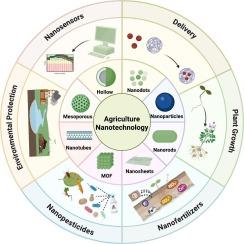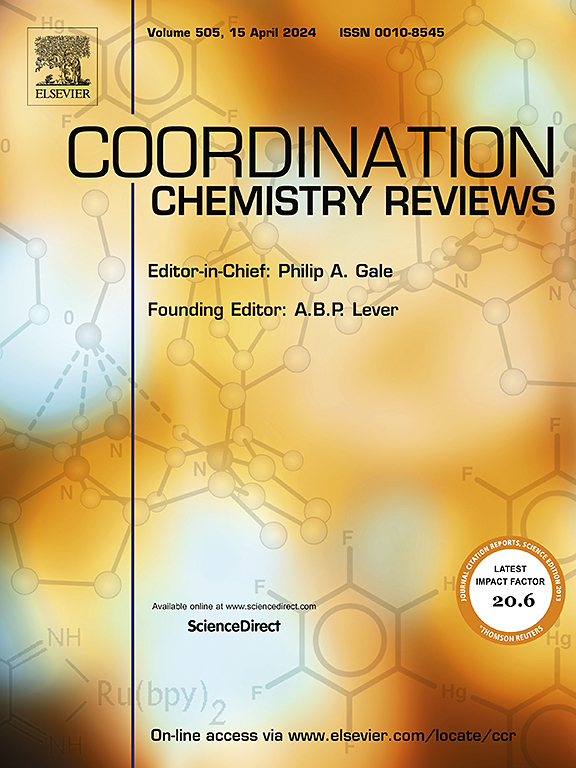农业纳米技术
IF 23.5
1区 化学
Q1 CHEMISTRY, INORGANIC & NUCLEAR
引用次数: 0
摘要
在人口快速增长和经济快速发展的背景下,人们对提高农产品产量和产品质量的需求急剧增加。解决这一需求需要整合先进技术和研究,以促进可持续农业做法。纳米技术以其独特的物理、化学和生物特性,已成为该领域非常有前途的工具。本文综述了纳米技术在农业中的重要意义和潜在应用。具体来说,它研究了纳米技术在增强植物基因工程传递系统、促进植物生长(特别是通过改进光合作用和生物固氮)、开发先进肥料和农药、保护环境和推进传感器技术方面的作用。此外,本文还探讨了纳米材料被植物吸收的机制,并评估了它们对植物健康的潜在毒性。最后,阐述了纳米技术在农业领域面临的挑战和机遇,提出了纳米技术在农业领域的研究和应用方向。这一分析旨在强调纳米技术在革新农业实践和促进全球粮食安全和可持续性方面的变革潜力。本文章由计算机程序翻译,如有差异,请以英文原文为准。

Agricultural nanotechnology
In the context of rapid population growth and economic development, the demand for improved agricultural yield and product quality has surged markedly. Addressing this demand requires the integration of advanced technologies and research to promote sustainable agricultural practices. Nanotechnology, with its exceptional physical, chemical, and biological properties, has emerged as a highly promising tool in this field. This comprehensive review explores the significance and potential applications of nanotechnology in agriculture. Specifically, it examines the role of nanotechnology in enhancing plant genetic engineering delivery systems, promoting plant growth, particularly through improved photosynthesis and biological nitrogen fixation, developing advanced fertilizers and pesticides, protecting the environment, and advancing sensor technologies. Additionally, the review investigates the mechanisms through which nanomaterials are absorbed by plants and evaluates their potential toxicity to plant health. Finally, it elucidates the current challenges and opportunities presented by nanotechnology in agriculture, proposing directions for future research and application. This analysis aims to highlight the transformative potential of nanotechnology in revolutionizing agricultural practices and contributing to global food security and sustainability.
求助全文
通过发布文献求助,成功后即可免费获取论文全文。
去求助
来源期刊

Coordination Chemistry Reviews
化学-无机化学与核化学
CiteScore
34.30
自引率
5.30%
发文量
457
审稿时长
54 days
期刊介绍:
Coordination Chemistry Reviews offers rapid publication of review articles on current and significant topics in coordination chemistry, encompassing organometallic, supramolecular, theoretical, and bioinorganic chemistry. It also covers catalysis, materials chemistry, and metal-organic frameworks from a coordination chemistry perspective. Reviews summarize recent developments or discuss specific techniques, welcoming contributions from both established and emerging researchers.
The journal releases special issues on timely subjects, including those featuring contributions from specific regions or conferences. Occasional full-length book articles are also featured. Additionally, special volumes cover annual reviews of main group chemistry, transition metal group chemistry, and organometallic chemistry. These comprehensive reviews are vital resources for those engaged in coordination chemistry, further establishing Coordination Chemistry Reviews as a hub for insightful surveys in inorganic and physical inorganic chemistry.
 求助内容:
求助内容: 应助结果提醒方式:
应助结果提醒方式:


